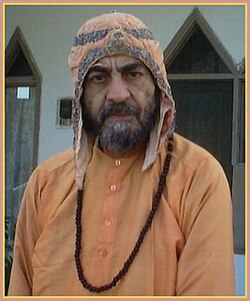DHARAM SINGH, BHAI (1666-1708), one of the Pan] Piare or the Five Beloved, the forerunners of Khalsa, came of farming stock. He was the son of Bhai Sant Ram and Mai Sabho, of Hastinapur, an ancient town on the right bank of the Ganges, 35 km northeast of Meerut (29°N, 77° 45`E). Dharam Das, as he was originally named, was born around 1666. As a young man, he fell into the company of a Sikh who introduced him to the teachings of the Gurus. He left home at the age of thirty in quest of further instruction. At the Sikh shrine ofNanak Piau, dedicated to Guru Nanak, he was advised to go to Guru Gobind Singh at Anandpur, where he arrived in 1698.
GOIND KUKK, BHAI, and Bhai Gola and Bhai Mohan, also Kukk Jatts, sought refuge at the feet of Guru Arjan and asked to be instructed in the path of righteousness and liberation. The Guru gave them twofold advice: "Repeat the Name of God and remember death. By remembering death, you will desist from committing sin, and by repeating God`s Name the effect of your past sins will be erased." Bhai Goind and his two companions became Sikhs and, according to Bhai Santokh Singh, Sn Gur Pratdp Sura] Granth, ever remained in the service of the Guru.








